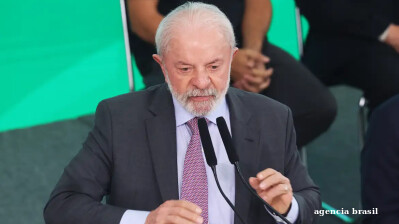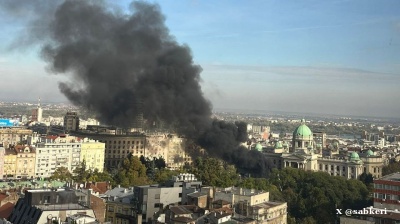Slovak Prime Minister Robert Fico's left-right coalition pushed controversial changes in the judiciary and criminal code through the Slovak National Council (parliament) in a late-night vote on February 8, ignoring mounting domestic protests as well as warnings from Brussels.
By March 15, the Special Prosecutor Office, which oversees serious criminal investigations such as into corruption, is to be dismantled, and its cases distributed among other prosecutors who are already overburdened and lack experience with tackling corruption.
Punishments for bribes and embezzlement of public funds will be weakened. Bribery of up to €250,000 could be punished with conditional sentences. The country's liberal daily DennikN highlighted that a bribe amounting to a bottle of cognac would carry the same sentence as a bribe of €250,000, between up to four years of prison and a conditional sentence.
Among other changes, the protection of whistle-blowers will also be weakened, and the timeframe in which cases can be prosecuted will be cut to a maximum of five years from currently up to 20 years.
Ruling coalition legislators relied on a narrow majority of 78 in the parliament of 150 to push through with the measures after opposition legislators ran out of options to obstruct the legislation.
Opposition parties and liberal media argue the changes will stop graft investigations into officials and supporters of Fico's Smer party from its last government and create an environment of impunity for corruption going forward.
“So they approved it. Despite everything. Despite people in the streets, despite several weeks of obstructions, complaints from the EU and experts, the threat of losing billions of euros, opposition from their voters and obvious stupidities they wrote into this pro-mafia package”, commented Michal Simecka, leader of the main opposition party, liberal Progressive Slovakia, moments after the night vote on Thursday, February 8.
The opposition and the country’s President Zuzana Caputova said they would file a case with the Constitutional Court over the legislation.
Čaputová on Thursday night said she would consider “all legal and constitutional options to prevent the legislation from entering into force”. Fico’s changes “irreparably violate the rights of the victims of crimes”, the Slovak president wrote on social media platform X.
Brussels has also previously voiced concerns over the changes. In December, the European Public Prosecutor's Office announced that it had concluded that "the proposed amendments ... constitute a serious risk of breaching the rule of law" and put "the Slovak government's intention to fulfill its duty to effectively protect the Union budget ... into question".
The Commission will now have to consider whether to punish the Slovak government by freezing EU funds, as it has done in Hungary and Poland, or whether this would merely push Fico into an alliance with Hungarian premier Viktor Orban that could further obstruct EU policymaking.
Representatives of the ruling coalition argued the changes would straighten what they see as existing discrepancies in the criminal code, while ending what they say as biased investigations carried out by the Special Prosecutor Office, whose head was nominated by the former centre-right government.
"The past government ... disrupted principles of the rule of law and violated human rights," Smer deputy Tibor Gaspar, a former police president who has been the subject of ongoing investigations, told parliament.
“Killing of a person must be punished more strictly than some financial misdeeds,” Parliamentary Speaker Peter Pellegrini, leader of the centre-left Hlas party in the coalition, argued in an interview for the commercial television Joj24 which he shared on social media.
DennikN and another liberal daily SME published an overview of the most controversial live cases that will be affected by the changes. Unless the Constitutional Court is able to block the changes before they come into effect on March 15 – which is unlikely – criminals will have their sentence reduced and charges against others that are now time-lapsed will be dropped.
Smer-linked oligarch Jozef Brhel, who could face 20 years of prison on charges of rigging public IT tenders, would now face eight years of prison time and could also be handed a conditional sentence if convicted.
Another Smer oligarch, Norbert Bodor, who is facing 12 years of prison for alleged money laundering in the so-called “Dobytkar” case, could now face 2-8 years and could also be handed a conditional sentence if convicted.
Bodor could also be handed conditional sentences in other investigations, in which he is accused of running a criminal ring and abusing police during a time when police were headed by his relative and current Smer legislator Gaspar.
Both Brhel and Bodor deny all charges.
The case of Jaroslav Hascak, former head of Czech-Slovak financial group Penta, could also be dropped. Hascak's widespread contacts and informal dealmaking with politicians during the era of centre-right premier Mikulas Dzurinda were exposed in the largest post-communist scandal in Slovakia, the so-called “Gorilla” case.
Charges against Fico and his deputy prime minister Robert Kaliňák have already been dropped. These related to allegations that the two had ordered the disclosure of confidential tax documents to discredit Smer’s political rivals.
“I have not come across any serious lawyer who would not be concerned about the legislative changes”, Ivan Stulajter, a correspondent for the DennikN, commented for bne Intellinews earlier.
Protests against the judicial overhaul across Slovakia are continuing and, as in the past weeks, have also taken place in front of Slovak embassies in Europe, including Brussels, Paris, and Prague. These have been the biggest protests since those that brought down Fico's last government in 2018 over the mafia-style assassination of investigative journalist Jan Kuciak and his fiance.
News

Brazil's Lula announces fourth presidential run at 80
Brazilian President Luiz Inácio Lula da Silva has announced he will seek re-election in October 2026, confirming his candidacy during a state visit to Indonesia on October 23.

Serbian president blames opposition for “terrorist attack” outside parliament
President Vucic blamed opposition groups for what he described as a “terrorist act” outside the National Assembly in Belgrade, after a 70-year-old man opened fire on a camp of government supporters and set fire to one of their tents.

IOC sanctions Indonesia over Israel visa ban
The International Olympic Committee has announced that international sports federations will be advised not to hold competitions or meetings in Indonesia after the country barred Israeli athletes from entering.

Serbian president accuses EU of backing “colour revolution” after European Parliament adopts harsh new resolution
MEPs back the toughest rebuke yet from Brussels towards Serbia in over a decade of EU candidacy.




